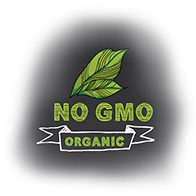
Introduction to Organic Vegetable Fertilizer
Organic vegetable fertilizer is a kind of fertilizer that is a special fertilizer used for vegetable cultivation. Organic fertilizers for plants are natural materials gotten from plant, animal, compost, and mineral sources. Because of these natural substances, vegetables that used organic fertilizer are healthier than those that used chemical fertilizers.
The Benefits of Organic Vegetable Fertilizer
- Improve Soil: Enhancing soil structure and keeping water.
- Provide Essential Nutrients: Supply organic nutrients such as nitrogen, phosphorus, potassium, and micronutrients.
- Provide Beneficial Bacteria: Promote the growth of beneficial bacteria and the absorption of vegetable nutrients.
- Environmentally Friendly: Reduce the use of chemical fertilizers to avoid polluting the environment and vegetables.
How to Choose The Right Fertilizer for Vegetables
Soil Test
Before choosing a fertilizer, we should test the pH value of the soil. Some testing kits and labs can analyze soil pH level and nutrient status. We can take different measures based on the different pH levels.
Matching Correct Fertilizer to Crop
Different vegetables will need different nutrients; for example, tomatoes and corn will require high-nitrogen fertilizers. Then, light feeders like lettuce and herbs need to thrive with balanced compost.
How to Apply Organic Fertilizer for Vegetable
Soil Preparation
- Organize a place for vegetables; remove the weeds and debris.
- Loosen the soil so that you can plant the vegetable seeds.
Application Methods
- Sprinkle compost or slow-release fertilizer around plant bases.
- Lightly spray vegetable foliage so that it can absorb quickly.
Tips: Foliar sprays in the early morning or evening to avoid midday heat.
Fertilizer Time & Tips
- Spray a little to avoid burning seedlings.
- Repeat the fertilizer every 4–6 weeks.




















